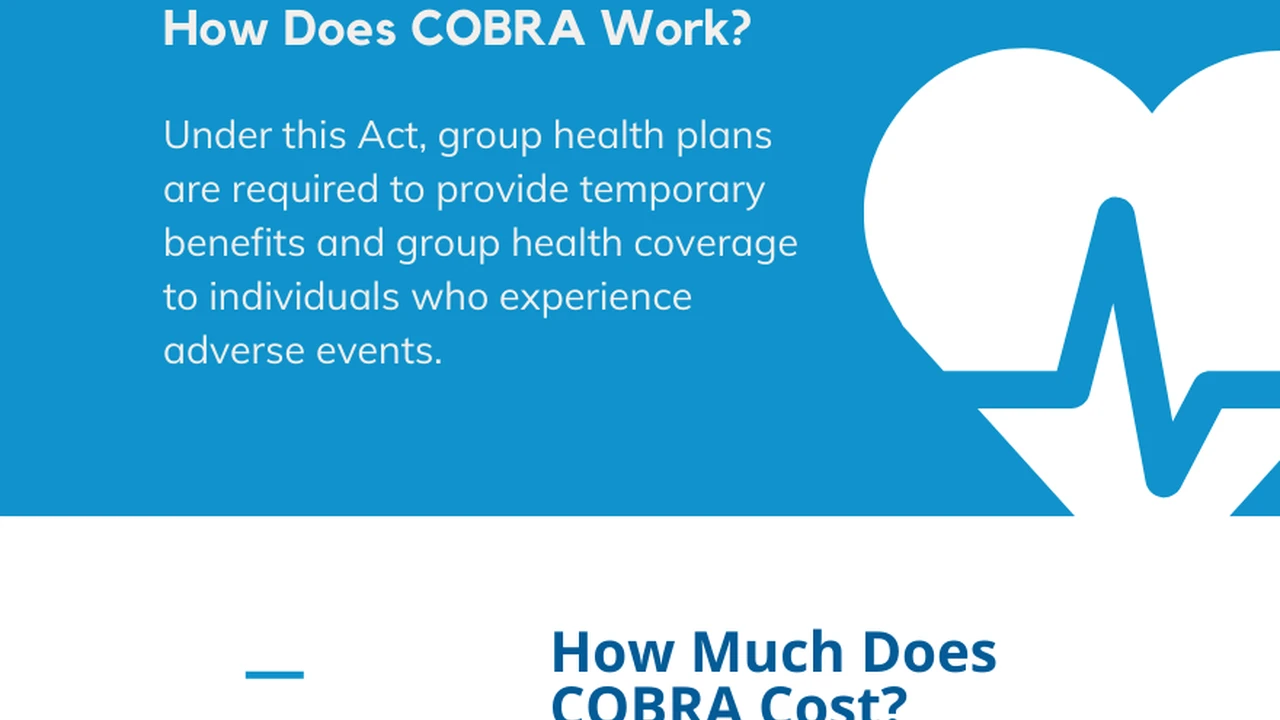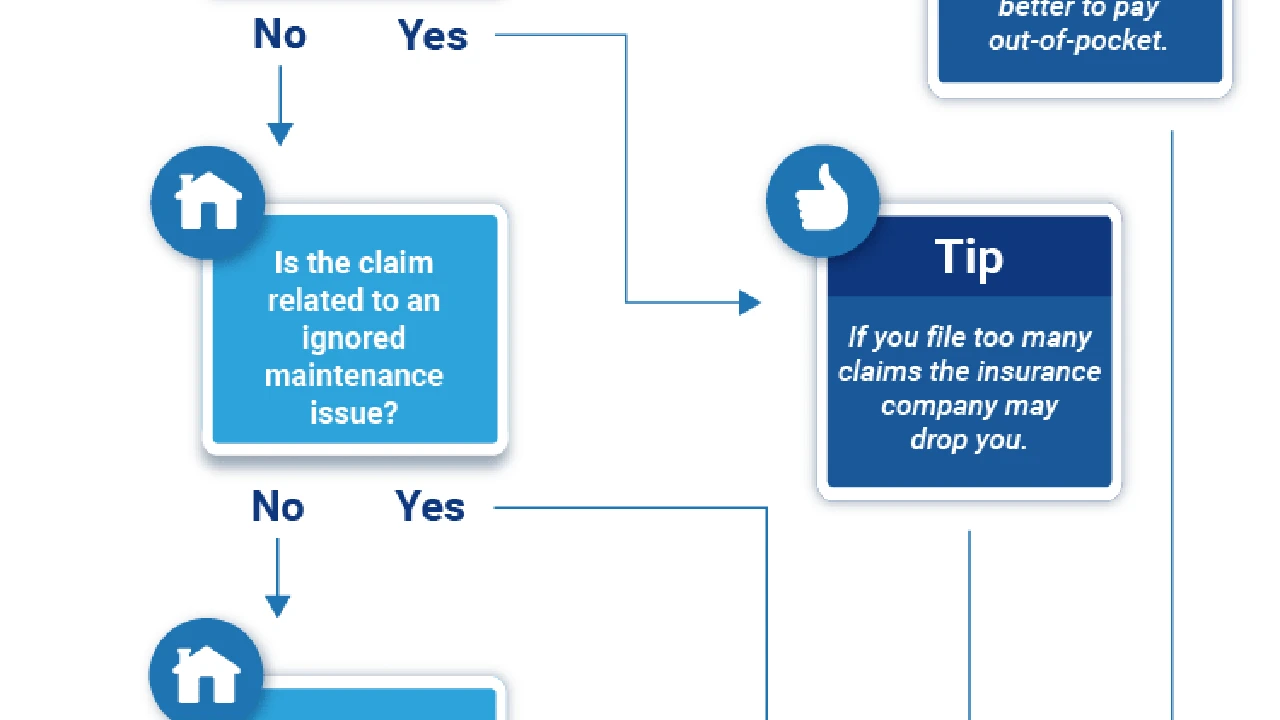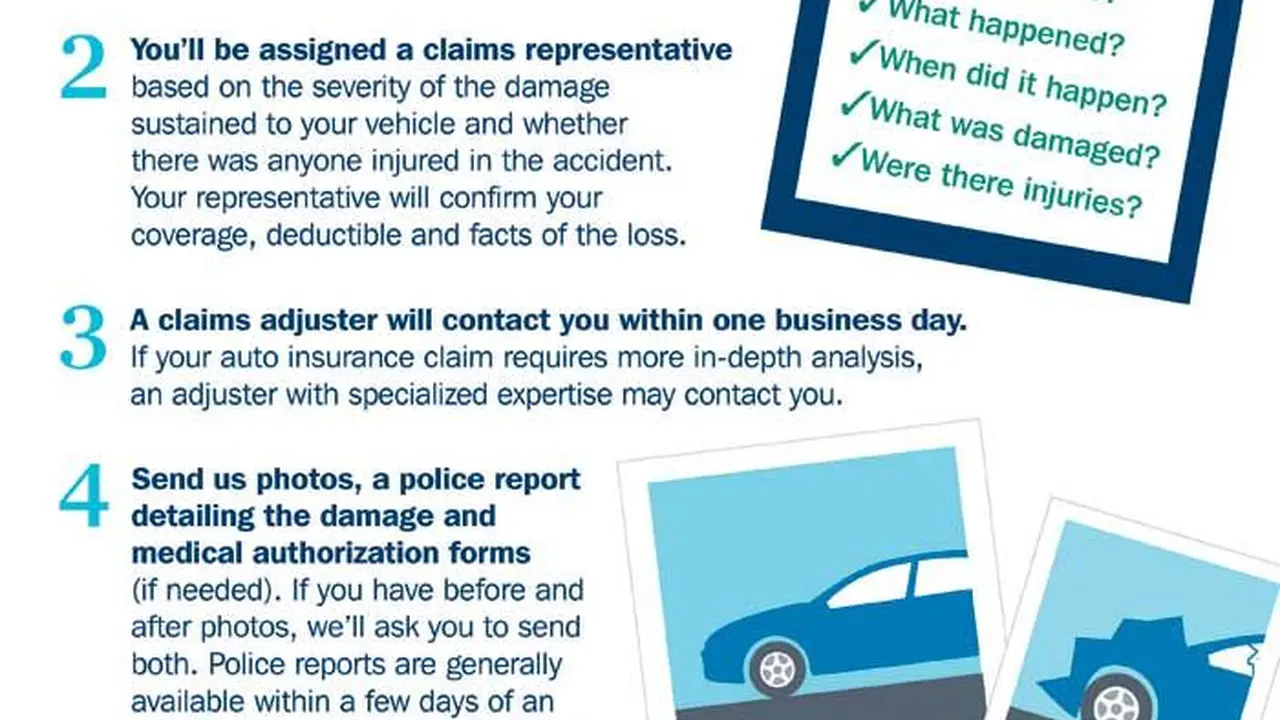COBRA Coverage: What You Need to Know
Learn how to file a travel insurance claim effectively with our step-by-step guide. Understand the documentation required, the claim process, and tips for a successful settlement.

Understanding Your Travel Insurance Policy Claim Requirements
Okay, so you've had a trip hiccup – a lost bag, a medical emergency, or maybe even a cancelled flight. The first thing you need to do before you even think about filing a claim is to *really* read your travel insurance policy. I know, it's about as exciting as watching paint dry, but understanding the ins and outs of your coverage is crucial. Look for these key details:
- Coverage Limits: How much will the policy actually pay out for each type of incident? For example, there might be a limit of $500 for lost baggage even if your designer suitcase and its contents were worth $2,000.
- Deductibles: How much do you have to pay out-of-pocket before the insurance kicks in? A higher deductible usually means a lower premium, but it also means you'll be paying more upfront if something goes wrong.
- Exclusions: What's *not* covered by the policy? Common exclusions include pre-existing medical conditions (unless specifically covered), extreme sports, acts of war, and participation in illegal activities.
- Time Limits: How long do you have to file a claim after the incident occurs? Most policies have strict deadlines, so don't delay!
- Required Documentation: What documents do you need to submit with your claim? This usually includes receipts, medical reports, police reports, and any other evidence supporting your claim.
Understanding these details will save you a lot of time and frustration in the long run and prevent you from filing a claim that will be automatically rejected.
Gathering the Necessary Documentation for Your Travel Insurance Claim
Now that you know what your policy covers, it's time to gather all the necessary documents to support your claim. Think of yourself as a detective collecting evidence! The specific documents you'll need will depend on the type of incident, but here's a general checklist:
- Policy Number and Details: Have a copy of your travel insurance policy handy.
- Proof of Travel: Airline tickets, hotel reservations, cruise documents – anything that proves you were actually on the trip.
- Receipts and Invoices: Keep receipts for everything you spend, from meals and accommodation to medical expenses and replacement items.
- Medical Reports: If you required medical treatment, obtain a detailed medical report from the doctor or hospital. This should include the diagnosis, treatment provided, and costs incurred.
- Police Reports: If you were a victim of theft or crime, file a police report immediately.
- Lost Baggage Claim Forms: If your baggage was lost or delayed, obtain a claim form from the airline.
- Cancellation/Delay Notices: If your flight or cruise was cancelled or delayed, get a written notice from the airline or cruise line.
- Photos and Videos: If possible, take photos or videos of the damage or loss.
- Witness Statements: If there were witnesses to the incident, ask them to provide written statements.
The more documentation you have, the stronger your claim will be. Make sure to keep copies of everything you submit, just in case.
Step-by-Step Guide to Filing Your Travel Insurance Claim with Ease
Alright, you've read your policy and gathered all your documents. Now for the actual filing process. Here's a step-by-step guide to help you through it:
- Contact Your Insurance Company: Call or email your insurance company as soon as possible to report the incident and initiate the claim process. Ask about their preferred method for submitting claims (online, mail, or fax).
- Obtain a Claim Form: Most insurance companies will provide a claim form that you need to fill out. You can usually download it from their website or request one by mail.
- Fill Out the Claim Form Carefully: Be honest and accurate when completing the claim form. Provide all the required information and double-check for any errors. Missing information can delay the processing of your claim.
- Attach Supporting Documents: Make copies of all your supporting documents and attach them to the claim form. Organize them in a logical order to make it easier for the claims adjuster to review.
- Submit Your Claim: Submit your claim form and supporting documents to the insurance company using their preferred method. If you mail it, consider sending it by certified mail with a return receipt to ensure it arrives safely.
- Follow Up: After submitting your claim, follow up with the insurance company to check on its status. Keep a record of all your communication with the claims adjuster.
- Appeal if Necessary: If your claim is denied, don't give up! Review the reason for the denial and determine if you have grounds for an appeal. Gather additional evidence and submit a written appeal to the insurance company.
Remember to be patient. The claims process can take some time, especially for complex claims. But by following these steps and staying organized, you can increase your chances of a successful settlement.
Navigating Common Travel Insurance Claim Denials and Appeals
Sometimes, despite your best efforts, your travel insurance claim might get denied. Don't panic! It happens. Here's what you need to know about common reasons for denials and how to appeal:
- Pre-Existing Medical Conditions: This is a frequent reason for denial. If your policy excludes pre-existing conditions and your medical claim is related to one, you'll need to prove that the condition was stable and under control before your trip. Some policies offer waivers for pre-existing conditions if you purchase them within a certain timeframe after booking your trip.
- Insufficient Documentation: If you didn't provide all the necessary documents, your claim could be denied. Double-check the requirements and gather any missing information.
- Exclusions: The incident might fall under a specific exclusion in your policy. Carefully review the exclusions section to see if there's any way to argue that the exclusion doesn't apply.
- Failure to Report the Incident Promptly: If you waited too long to report the incident to the insurance company, your claim could be denied. Make sure to report incidents as soon as possible.
- Intoxication or Drug Use: Claims related to incidents that occurred while you were under the influence of alcohol or drugs are often denied.
How to Appeal:
- Review the Denial Letter: Understand the specific reason why your claim was denied.
- Gather Additional Evidence: Collect any additional documents that might support your claim, such as medical records, witness statements, or expert opinions.
- Write a Formal Appeal Letter: Clearly state why you believe the denial was incorrect and provide all the supporting evidence.
- Meet the Deadline: Submit your appeal letter by the deadline specified in the denial letter.
- Consider Legal Assistance: If your appeal is denied again, you might want to consult with an attorney specializing in travel insurance claims.
Remember, persistence and a well-documented appeal can sometimes lead to a successful outcome.
Tips for a Successful Travel Insurance Claim Settlement
Want to maximize your chances of getting a fair settlement? Here are some insider tips:
- Be Honest and Accurate: Honesty is always the best policy. Providing false or misleading information can void your policy and lead to legal trouble.
- Be Organized: Keep all your documents in one place and create a timeline of events. This will make it easier to track your claim and respond to requests from the insurance company.
- Communicate Effectively: Respond to requests from the claims adjuster promptly and clearly. Keep a record of all your communication, including dates, times, and names of people you spoke with.
- Know Your Rights: Understand your rights as a policyholder. You have the right to a fair and impartial review of your claim.
- Be Persistent: Don't give up if your claim is initially denied. Appeal the decision and continue to advocate for yourself.
- Consider Mediation or Arbitration: If you and the insurance company can't reach an agreement, consider mediation or arbitration. These are alternative dispute resolution methods that can help you resolve the issue without going to court.
Recommended Travel Insurance Products and Their Claim Processes
Choosing the right travel insurance is half the battle. Here are a few recommended products and a brief overview of their claim processes:
Allianz Travel Insurance Claim Process and Products
Products: Offers a wide range of plans, including trip cancellation, trip interruption, medical coverage, and baggage protection.
Claim Process: Allianz provides an online claim portal for easy submission. You'll need to provide your policy number, details of the incident, and supporting documentation. They typically respond to claims within a few business days.
Product Spotlight: Allianz Global Assistance Comprehensive Plan - Offers robust coverage for trip cancellation, interruption, medical emergencies, and lost baggage. Ideal for international travel.
Price: Prices vary depending on the trip cost, duration, and your age, but expect to pay between $100-$500 for a comprehensive plan for a typical two-week international trip.
World Nomads Travel Insurance Claim Process and Products
Products: Caters specifically to adventurous travelers, offering coverage for activities like hiking, diving, and skiing. They also provide emergency medical and evacuation coverage.
Claim Process: World Nomads has an online claim process managed by a third-party administrator. You can submit your claim and upload supporting documents directly through their website. They are known for their relatively quick claim processing times.
Product Spotlight: Explorer Plan - Covers a wide range of adventure activities and includes higher coverage limits for medical emergencies and evacuation. Best for active travelers.
Price: A typical "Explorer" plan for a two-week trip with adventure activities can range from $150-$600, depending on your destination and age.
Travel Guard Travel Insurance Claim Process and Products
Products: A popular choice for both domestic and international travel, offering trip cancellation, interruption, medical, and baggage coverage.
Claim Process: Travel Guard allows you to file claims online, by mail, or by phone. Their online portal is user-friendly and provides step-by-step instructions. They typically require supporting documentation to be submitted within a specific timeframe.
Product Spotlight: Deluxe Plan - Provides comprehensive coverage with higher limits for trip cancellation, interruption, and medical expenses. A good option for families and those seeking peace of mind.
Price: Expect to pay between $80-$400 for a "Deluxe" plan, depending on the trip cost and your age.
Comparing Travel Insurance Products: Which is Right for You?
Choosing the right travel insurance depends on your individual needs and travel style. Here's a quick comparison of the products mentioned above:
| Feature | Allianz Global Assistance | World Nomads | Travel Guard |
|---|---|---|---|
| Best For | General International Travel | Adventure Travel | Domestic and International Travel |
| Coverage | Comprehensive | Adventure Activities, Emergency Evacuation | Comprehensive |
| Claim Process | Online Portal | Online Portal (Third-Party) | Online, Mail, Phone |
| Price Range (2-week trip) | $100-$500 | $150-$600 | $80-$400 |
| Key Benefit | Wide range of plan options | Specialized for adventure activities | User-friendly claim process |
Factors to Consider When Choosing:
- Trip Cost: Choose a plan with adequate trip cancellation and interruption coverage based on the total cost of your trip.
- Destination: Some plans offer better coverage for specific regions or countries.
- Activities: If you plan to participate in adventure activities, make sure your policy covers them.
- Medical Needs: Consider your medical history and choose a plan with sufficient medical coverage and emergency evacuation benefits.
- Budget: Balance the cost of the policy with the level of coverage you need.
Doing your research and comparing different policies will help you find the best travel insurance for your needs and ensure a smoother claim process if something goes wrong.
Dealing with Unresponsive Travel Insurance Companies: What to Do
Sometimes, even after filing your claim and following all the steps, your insurance company might become unresponsive. Don't despair! Here's how to handle the situation:
- Document Everything: Keep a detailed record of all your communication with the insurance company, including dates, times, names of people you spoke with, and copies of emails and letters.
- Send a Follow-Up Letter (Certified Mail): If you haven't heard back within a reasonable timeframe (usually 2-4 weeks), send a follow-up letter by certified mail with a return receipt. This provides proof that the insurance company received your letter.
- Contact Your State Insurance Department: If you still don't receive a response, file a complaint with your state's insurance department. They can investigate the matter and help you resolve the issue.
- Consider Legal Action: If all else fails, you might need to consult with an attorney specializing in travel insurance claims. They can advise you on your legal options and help you pursue a claim in court.
- Social Media: While not always effective, sometimes a polite and factual post on the insurance company's social media page can get their attention.
Remember to stay calm and professional throughout the process. Being persistent and assertive can often help you get the response you deserve.
So there you have it! A comprehensive guide to navigating the often-complex world of travel insurance claims. By understanding your policy, gathering the necessary documentation, and following the steps outlined in this guide, you can significantly increase your chances of a successful settlement and enjoy your travels with peace of mind. Happy travels!
:max_bytes(150000):strip_icc()/277019-baked-pork-chops-with-cream-of-mushroom-soup-DDMFS-beauty-4x3-BG-7505-5762b731cf30447d9cbbbbbf387beafa.jpg)






